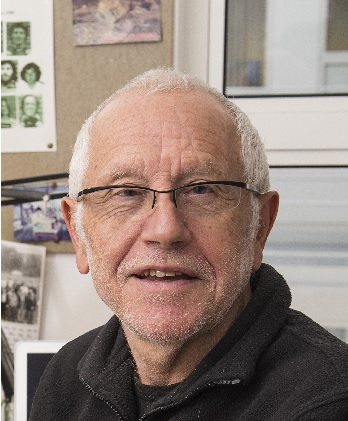 Ray Dixon, John Inness Centre, Norwich (UK Lead)
Ray Dixon, John Inness Centre, Norwich (UK Lead)
Ray is recognized for his world-leading research on the molecular biology of nitrogen fixation and biochemical characterisation of its transcriptional control. He was one of the first scientists to develop methods for genetic analysis of diazotrophs and successfully transferred the complete cluster of nitrogen fixation (nif) genes from Klebsiella pneumoniae to Escherichia coli thus creating the first engineered diazotroph (Dixon and Postgate,1972). His research currently focuses on bacterial signal transduction cascades and their interactions with the transcriptional apparatus, with major emphasis on regulatory networks that control the expression of nif genes in response to oxygen, carbon and fixed nitrogen status. This expertise will be used to engineer ammonium excretion by endophytes in association with cereals. More information about Ray’s work can be found here.
Contact: ray.dixon@jic.ac.uk

Phillip Poole, University of Oxford
Philip Poole was Professor of Microbial Physiology at the University of Reading until he moved to the John Innes Centre in Norwich in 2007. In 2013, he took up a personal chair as Professor of Plant Microbiology at the University of Oxford. His group studies the physiology of bacterial growth and survival in the rhizosphere, colonisation of roots and how bacteria establish symbiotic interactions with plants. A further focus of his research is the physiology and biochemistry of nitrogen fixation in legume nodules. Recently he has developed new methods to study how plants control the plant root microbiome. More information about Philip’s work can be found here.
Contact: Philip.poole@plants.ox.ac.uk
 Euan James, The Hutton Institute
Euan James, The Hutton Institute
Euan is a researcher at the James Hutton Institute, Dundee, and has specialised in N-fixation by legumes and non-legumes, particularly those from the tropics. His main techniques include high resolution microscopy (light and EM) and 15N-based methods, which in combination have been used to confirm the effectiveness of many novel N-fixing plant-bacterial interactions (leguminous and non-leguminous). He will be using these techniques to examine in detail the symbioses/mutualisms in the Newton VJC. More information about Euan’s work can be found here.
Contact: EuanKevin.James@hutton.ac.uk

Kerrie Farrar, IBERS, University of Aberystwyth
Kerrie graduated in 1996 with a Plant Sciences degree from the University of Edinburgh. She obtained a PhD in Plant Molecular Biology from the University of Durham and spent three years (2000-2003) as a postdoc at Aberystwyth University. Kerrie has worked at IGER/IBERS since January 2004 as a postdoc (2004-2007) and started as a BBSRC Institute Career Path Fellow here on July 1st (2007-2013) and most recently as research group leader for Energy Crop Biology (2011-present). Research in Kerries lab aims to understand both plant development and plant-microbe interactions, with a focus on the energy grass Miscanthus. Miscanthus is a tall C4 grass from South East Asia which grows to a height of several metres even in temperate climates. Increasing biomass yield is essential in order to replace petroleum-based energy, liquid transport fuels, and bulk chemicals. More information about Kerri’s work can be found here.
Contact:kkf@aber.ac.uk
